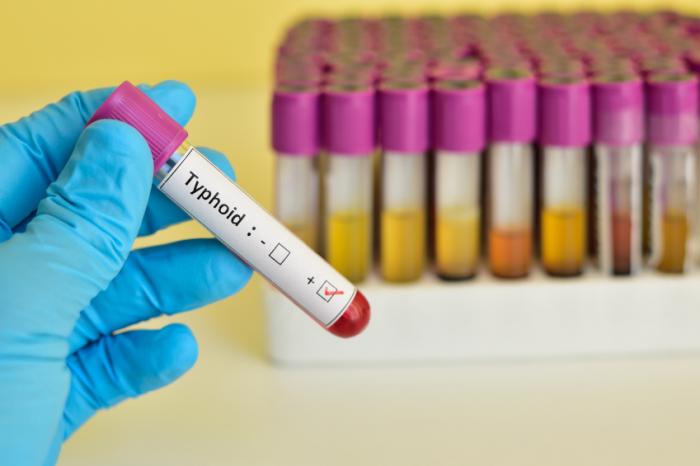
‘Typhoid is gaining antibiotic resistance’; Study
 Typhoid is one of the most common endemics in India. Now, recent research has shown that there is a need for a strict policy of antibiotic use and to devise and use more accurate diagnostic methodologies for typhoid, to be followed by the medical fraternity.
Typhoid is one of the most common endemics in India. Now, recent research has shown that there is a need for a strict policy of antibiotic use and to devise and use more accurate diagnostic methodologies for typhoid, to be followed by the medical fraternity.
Typhoid cases are on the rise and children, especially those with the weak immune system are at a greater risk of infection. There are reports of antibiotic-resistant typhoidal Salmonellae bacterial strain that is making the treatment of the disease difficult.
In Gujarat, there have been 4,478 lab-confirmed typhoid fever cases reported in just one month. These cases have been rising steadily from 749 in July to 1,103 in August. The researchers at the Indian Institute for Public Health (IIPH) had analysed reports of 51,260 blood cultures at two public medical college pathological laboratories and one corporate lab, in which Salmonellae isolates were detected in only 146 (0.28%). Of these 67 (54%) were drug-resistant. The resistance to the antibiotic called ciprofloxacin varied widely between the public and private sector labs, though the multi-drug resistance was absent.
The research paper also found that the minimal resistance to third-generation antibiotic cephalosporins which may indicate initiation of resistance to this important group of antibiotics in the city’s typhoidal salmonella. According to the research paper, Salmonellae bacteria isolates from the private sector lab showed complete resistance to azithromycin. The study claimed that “concurrent resistance to more than one antibiotic was very high, 88%, amongst the 67 resistant isolates.”
“Though our survey does not give the actual typhoid burden for the city, it points to a vital aspect — that of the need for a strict policy of antibiotic use and to devise and use more accurate diagnostic methodologies for typhoid, to be followed by the medical fraternity,” says lead author of the research Dr Veena Iyer, an Associate Professor with IIPH, Gandhinagar. Other members of the researcher team included Anal Ravalia, Kankshi Bhavsar, Susanna Cottagiri Abraham, Dileep Mavalankar.
Source: Times Of India.